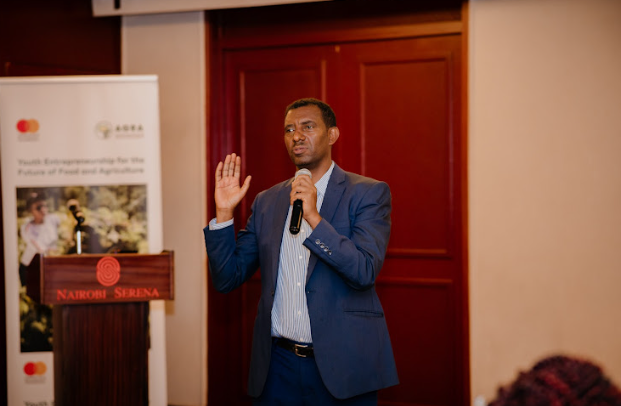The Alliance for a Green Revolution in Africa (AGRA) is engaging Kenyan youth in agri-food systems to tackle the challenges posed by climate change and explore potential solutions.
These discussions come as food systems transformation is increasingly recognized as a vital part of addressing the climate crisis and biodiversity loss. The recent gathering, which brought together 100 youths, is part of a series of national-level conversations initiated by AGRA and marks the fourth event focused on climate-related issues.
During the session, the youth shared innovative strategies they have implemented to reduce climate vulnerability in their communities. The discussions aimed to foster dialogue between young people and key stakeholders in the agricultural sector, highlighting the need for youth empowerment to better understand their needs and priorities.
The ultimate goal was to identify opportunities within the sector in light of the ongoing climate crisis and advocate for the transformation of food systems in Africa.
Kindie Fantaye, AGRA’s head of climate, adaptation, sustainable agriculture, and resilience, emphasized that youth leadership is crucial in addressing climate challenges.
“Together, we can build a sustainable future where our youth are not only survivors of climate change but leaders in creating a resilient and prosperous Kenya,” he said.
A 2022 climate report revealed that Africa is warming at a rate faster than the global average, worsening the already fragile agricultural systems across the continent. This reality highlights the urgent need for collective action to support Africa’s youth, who are among the most vulnerable to climate shocks.
The Youth in Climate convening is part of AGRA’s broader initiative to engage young people in dialogues and networks at the national level, fostering collaboration, knowledge exchange, and coordinated action.
Elizabeth Ngeny, an advisor on gender and affirmative action at the President’s Economic Transformation Office, emphasized the important role of civic organizations, NGOs, and academic institutions in advancing climate change interventions. She acknowledged the contributions of entities such as the Kenya Meteorological Department and the University of Nairobi’s Institute for Climate Change Research in conducting essential research.
Jeremiah Rogito, AGRA’s specialist in food systems and land use, noted that the insights gained from this session would be presented at the Africa Food System Forum in Kigali, Rwanda, in September.
“We look forward to amplify the voice of the youth what they need to see happening on climate action in the continent We use these voices to global engagement like COP29 to change policies that favor the youth in Agriculture.”



